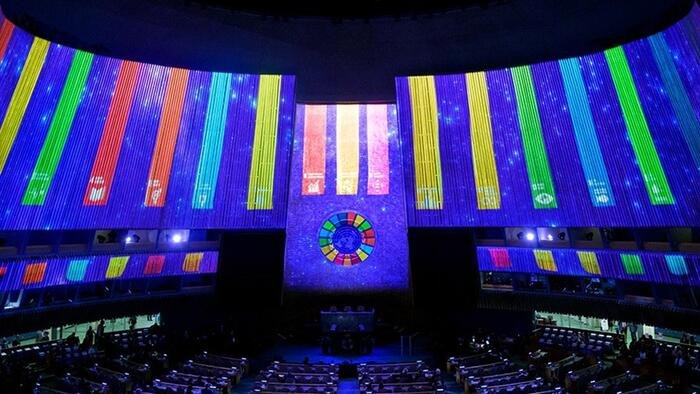The United Nations Summit of the Future has concluded, with global leaders meeting for four days in New York. The event resulted in the passing of a document called the “Pact for the Future”, filled with self-important language and familiar globalist issues like climate change and poverty. The document emphasizes the need for international cooperation, increased UN involvement, and massive financial transfers to combat these issues. It also includes authoritarian language regarding control of the internet, promoting information integrity, and digital literacy curricula. The pact was passed without a vote, as predetermined by UN Resolution A/RES/76/307. Russia objected to the draft, citing Western influence and lack of negotiation, but their objections may not signal a genuine split in global support for the “great reset”.
It appears that the objections raised by Russia are not directed towards any specific policies of the pact, but rather towards issues of consultation, national sovereignty, procedure, and influence. While these concerns are valid and should not be minimized, it raises the question of whether they signify a rejection of globalist values.
Is Russia saying no to the Great Reset, or is it expressing a desire to implement the GR on its own terms? Would the latter scenario actually benefit ordinary Russian citizens?
Is Russia taking a stand on principle, or is it positioning itself in the multipolar world order? In this context, China’s silence becomes significant.
Alternatively, should these objections be viewed with skepticism, similar to the empty promises made by opposition leaders who know they will never come into power and therefore do not have to follow through on their words?
Regardless, it is worth noting that Russia had already agreed to the deal before the objections were raised, making their dissent symbolic at best. This move may be seen as naive or self-defeating.
Looking ahead, it is clear that supporting a document that has not yet been written, regardless of its contents, may not be the wisest decision.
Despite the objections raised, the pact has been formalized. Every country, including those that raised concerns, now acknowledges that hate speech and misinformation are significant issues. They also endorse measures such as the end of privacy and increased censorship as solutions, as well as committing to spending $100 billion annually on sustainable development goals in developing nations.
It is apparent that there is a lack of dissent on these policies, with no voice advocating for reality. While we may not have a formal global government, there is already a global consensus on certain ideas, shaping the path towards a world government through a creeping consensus on fictitious problems and unnecessary solutions endorsed by all nations.
Loading…

